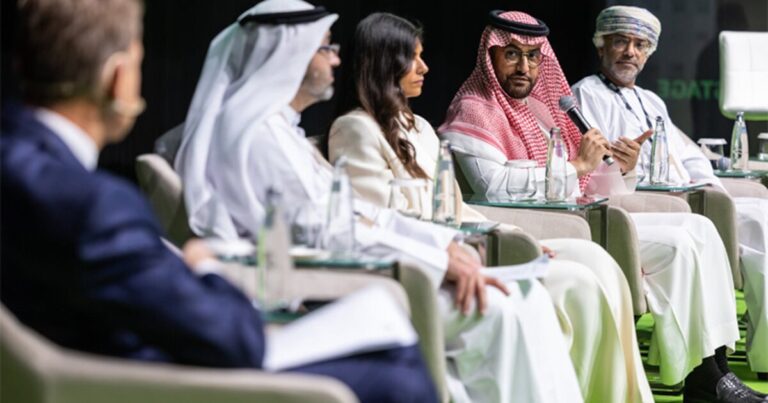Streamlining the GCC’s thriving tourism industry by connecting destinations was at the top of the agenda at the 31st Arabian Travel Market, where policymakers met to discuss the future of regional travel.
His Excellency Abdullah Bin Touq Al Marri, UAE Minister of Economy, noted the tourism sector’s growing contribution to the Emirates’ economy in his opening comments on the ATM 2024 Global Stage held in Dubai earlier this week.
“According to the World Travel and Tourism Council (WTTC), our tourism sector is a dynamic force within our economy, contributing a staggering 11.7% to GDP. [in 2023]This is equivalent to 220 billion UAE dirhams,” His Excellency Al Marri told attendees.
“Forecasts for 2024 are set even higher, with the contribution to the global economy expected to be 12%. [UAE’s] GDP, equivalent to 236 billion UAE dirhams. ”
A panel discussion was held prior to the lecture with His Excellency Khalid Jassim Al Midfa, Director-General of Sharjah Business and Tourism Development Authority. Mr. Fahad Hamidaddin, CEO of Saudi Tourism Authority. His Excellency Azan Al Busaidi, Deputy Minister of Tourism, Ministry of Culture, Heritage and Tourism of Oman. and HESarah Buhijji, CEO of Bahrain Tourism and Exhibition Authority.
The session was moderated by Dubai Eye presenter Richard Dean.
During an in-depth discussion, the ministerial panelists emphasized the importance of inter-regional efforts to take the GCC tourism industry to the next level, striking the right balance between cooperation and competition between destinations and countries. I searched.
The planned GCC unified tourist visa has been cited as a key driver for the region, alongside factors such as sustainability, infrastructure and culture.
Panelists said the planned unified visa would allow member states to present the GCC as a connected destination, improving accessibility and boosting KPIs such as length of stay, average spending and employment. .
Speakers said they continue to work to ensure the travel industry positively impacts local businesses, communities and ecosystems and contributes to the long-term sustainability of tourism across the region.
Participants also explained that current and future infrastructure will complement the GCC unified tourist visa by enhancing accessibility within and between Gulf countries.
Ministerial speakers highlighted the continued investment in new and existing airports and cruise terminals, as well as the upcoming GCC railway, which will help facilitate and optimize access to the entire region for domestic and international visitors. emphasized the central role of
Arabian Travel Market Exhibition Director ME Daniel Curtis expressed his great gratitude to this year’s ministerial participants for providing diverse and valuable insights into the future of integrated tourism in the region.
“While it is clear that healthy competition will continue to play a key role in strengthening the GCC’s world-class tourism offering, cooperation will help ensure that the region is the sum of its parts in terms of attracting global tourists. It was also encouraging to hear how things are going for the above.” Dear Travellers. ”

